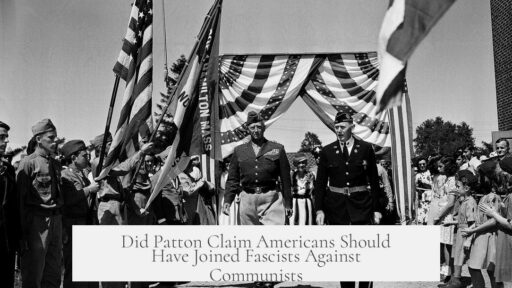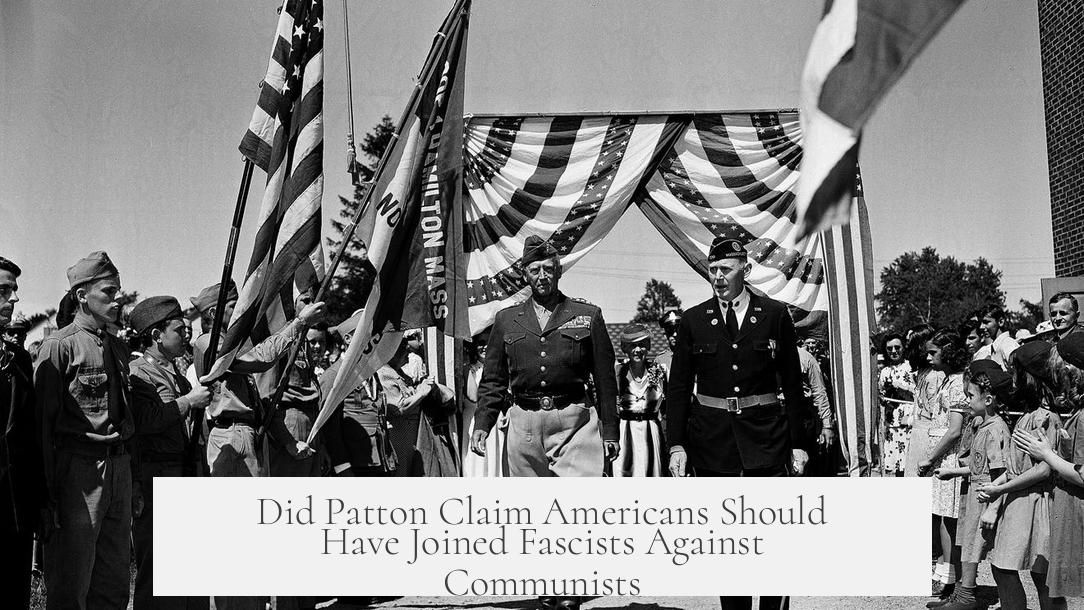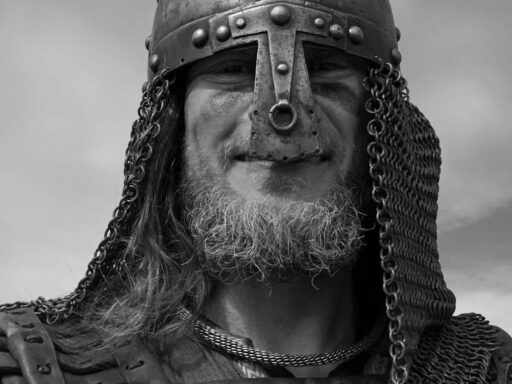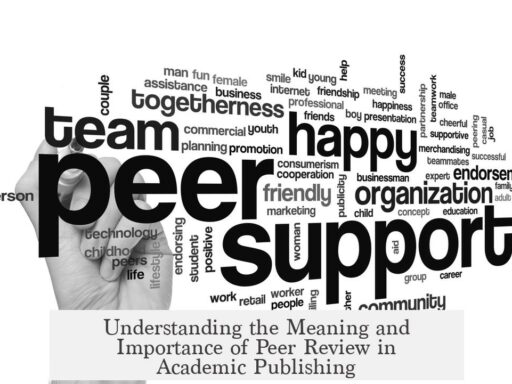Patton did express that the Americans effectively fought on the wrong side by focusing on Nazi Germany instead of the Soviet Union and Communism, but there is no verified evidence that he explicitly said Americans should have fought alongside fascists to defeat the communists. His beliefs centered on anti-Communism and opposition to the USSR, which he saw as the true long-term threat. However, linking this to an explicit advocacy to side with fascists during World War II misrepresents his stance.
General George S. Patton strongly distrusted Communism and the Soviet Union. Throughout the war and after, he viewed the USSR not as an ally but as a temporary, necessary partner to defeat Germany. He anticipated a future war between the West and the Soviets, a belief common among some military leaders. Patton’s famous remark about having “defeated the wrong enemy” reflects his conviction that post-war conflict with the Soviet Union was inevitable.
Patton’s anti-Communist views were deeply intertwined with his racial and political prejudices. He harbored strong biases against Russians and Jews, often expressing these in starkly prejudiced terms. His mindset reflected a broader pre-war anti-Communist rhetoric shaped by racism and conspiracy theories. Patton favored Anglo-Saxon heritage over other groups, a belief that influenced his interpretation of geopolitical threats.
After Germany’s defeat, Patton’s sympathies appeared to lean toward the German people, including many former Nazis. As military governor of Bavaria, he oversaw a de-Nazification process he considered too harsh and ineffective. Patton controversially compared Nazi party membership to ordinary political affiliations in the U.S. such as Democrat or Republican, suggesting the label was often superficial rather than ideological.
His diaries and letters reveal a conspiratorial view concerning Jews and Communists undermining Germany. Patton believed that a “Semitic influence” was pushing Communism and attempting to remove ethnic Germans and non-Jewish business leaders from their positions. He described post-war political forces as working against German interests through Communist and Jewish collaboration, feeding into common conspiracy narratives of the era.
Despite these harsh and controversial views, Patton never publicly or privately declared that the United States should have sided with fascist regimes, such as Nazi Germany, in World War II. His belief in an imminent conflict with the Soviet Union colored his interpretation of the war’s aftermath. He hoped the West would oppose the USSR strongly, but siding with fascists against Communism was not a stance he explicitly endorsed or advocated.
To clarify:
- Patton viewed the Soviet Union as the main post-war threat, not Nazi Germany.
- He believed Communism posed an existential risk to the West.
- He was sympathetic toward Germans and former Nazis in the post-war period.
- He used strong, often racist language against Russians and Jews, reflecting his prejudices.
- He never explicitly called for the U.S. to ally with fascists during WWII.
- His statement about fighting the “wrong enemy” reflects his post-war anti-Communist sentiment.
This understanding matches the known historical record of Patton’s views based on his diaries, letters, and official actions. Some post-war statements and writings by Patton have been seized upon and misinterpreted to suggest he advocated for cooperation with fascists, but no verified sources confirm such a direct claim.
The nuance is important. Patton’s criticism targeted the shifting alliances that forced the U.S. to cooperate temporarily with the Soviet Union. His vision was of a Western alliance eventually containing Communism, not embracing fascism as a means to that end. While this position was controversial and colored by his biases, it did not amount to outright advocacy for fascist alliances.
| Aspect | Patton’s Actual Position |
|---|---|
| Enemy Focus | Post-war threat is the USSR and Communism, not Nazi Germany |
| Alliance Views | Temporary alliance with USSR was a necessity, not an ideal long-term partner |
| Stance on Fascists | Sympathetic to Germans after war, but no explicit call to fight alongside fascists |
| Racial & Political Views | Held strong racial prejudices and conspiratorial beliefs against Jews, Russians |
| Public Statements | No verified direct statement advocating alliance with fascists in WWII |
Patton’s complex legacy includes his military prowess, controversial political opinions, and post-war roles. His view that the “wrong enemy” was defeated captures his strategic focus on Soviet communism as the looming danger. Even so, the absence of an explicit call to cooperate militarily with fascists is clear in historical evidence.
Key takeaways:
- Patton believed the Soviet Union was the true long-term enemy, not Nazi Germany.
- He was skeptical of the USSR and Communism, predicting future conflict.
- He showed post-war sympathy for Germans, including former Nazis, but did not publicly advocate fighting alongside them.
- His views were marked by racial prejudice and conspiratorial thinking about Jews and Communists.
- No direct evidence confirms he told Americans to fight on the fascist side during WWII.
Did Patton Actually Say the Americans Fought on the Wrong Side and Should Have Fought Alongside Fascists?
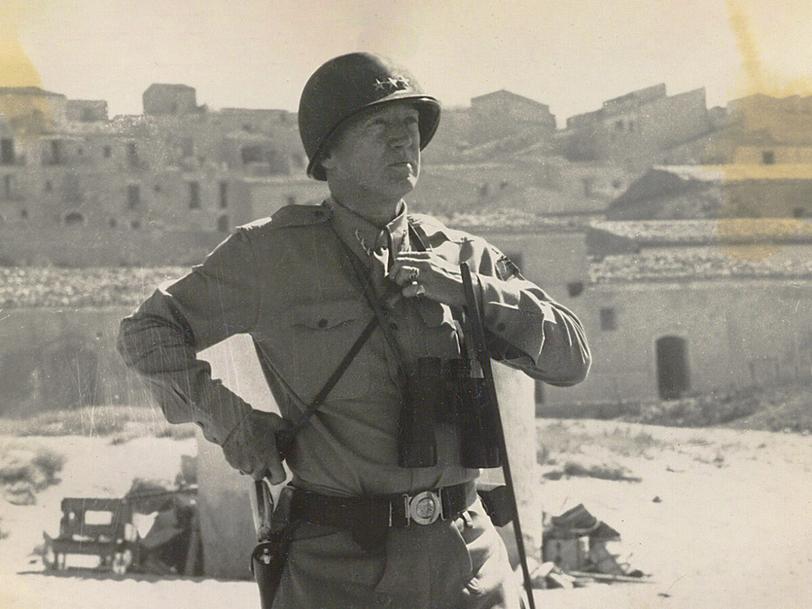
George S. Patton, one of the most iconic American generals of World War II, is often quoted or paraphrased as saying that the Americans “fought on the wrong side,” implying they should have fought alongside the fascists (Nazis) to defeat communism. While there’s no solid evidence he explicitly said this, the reality is far more complex and shaded with intense anti-Communism, racial prejudice, and controversial post-war views. Let’s unpack this claim carefully.
If you are wondering whether Patton literally urged Americans to side with fascists, the answer is a clear no. However, Patton did see Nazi Germany as a lesser and temporary evil—primarily because he viewed the Soviet Union and Communism as the true, long-term threat. This nuance often gets lost in the shuffle of sensational quotes and conspiracy theories.
Patton’s Early Anti-Communist Roots
Before World War II, the United States government, including military leaders like Patton, held strong anti-Communist views. Patton’s involvement in the Bonus Army operation in 1932 offers a glimpse into his mindset. This operation suppressed a march by WWI veterans seeking government help during the Depression. Patton saw this peaceful protest as “insidious leftism,” a threat from which Communism loomed large.
Why is this important? It shows Patton’s early posture against Communism wasn’t a sudden WWII epiphany. It was deeply ingrained, layered with distrust and fear of leftist movements. Patton’s worldview was already primed to view Communism as an enemy to the American way.
The Wartime Alliance: A Marriage of Convenience
During World War II, the Allies (including the US and USSR) teamed up against Nazi Germany. Yet, Patton’s private opinions painted a different picture. He viewed this alliance with the Soviet Union as a temporary and necessary evil. According to his diaries and letters, Patton believed war with the Soviets was inevitable.
“He had no love for Communism, or the USSR, and to him they were at best a temporary alliance of necessity, to be abrogated as soon as feasibly possible.”
“He was fairly convinced it was only a matter of time before a shooting war would happen between the West and the Soviets.”
Patton anticipated that after defeating the Nazis, the US and its allies would turn their guns eastward. This strategic expectation explains what many paraphrase as “We’ve defeated the wrong enemy.” It’s less about preferring the Nazis, and more about seeing Communism as the greater danger looming just beyond the war’s end.
Patton’s Racial and Political Biases
Here’s the uncomfortable truth: Patton’s opposition to Communism intertwined deeply with racial prejudices common at the time, some echoing Nazi propaganda. He harbored overt racial animosity toward Russians and Jews, viewing Anglo-Saxon heritage as superior. This bigotry colored his political views and decisions.
“He disliked Russians and Jews in stark racial terms, and thought that white people of Anglo-Saxon heritage were better than anyone else.”
Such attitudes, frankly, put Patton on shaky moral ground and influenced his sympathy toward Germans after the war, especially those he felt were unfairly punished or vilified.
Post-War Patton: Sympathizing with Germans and Controversy
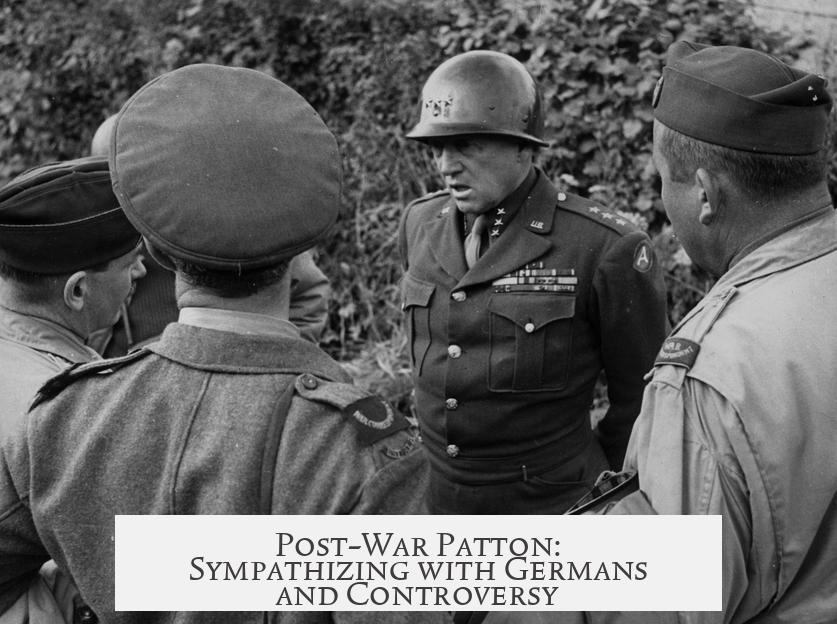
After the war, Patton became military governor of Bavaria. His leadership generated controversy when he allowed former Nazi officials to retain administrative positions. Patton is famously quoted comparing Nazi party membership to membership in American political parties—a statement that shocked many.
“Under our rules… we have to remove everyone who has ever expressed himself in any way as a Nazi… anybody who was in business… had to say he was a Nazi and pay dues.”
Patton’s leniency was less about endorsing their politics and more about skepticism of the sweeping de-Nazification policies he saw as unjust. He viewed many Germans as victims rather than villains. This sympathy was unpopular and contributed to his demotion.
Conspiracy Theories and Semitic Influence
To complicate his legacy, Patton privately expressed conspiratorial views toward Jews and Communists. He believed a “Judeo-Bolshevik” conspiracy was orchestrating policies to dismantle Germany and promote Communism. Comments like the following appeared in his letters and diaries:
“The noise against me is only the means by which the Jews and Communists are attempting with good success to implement a further dismemberment of Germany.”
“[There is] a very apparent Semitic influence in the press. They are trying to do two things: First, implement Communism, and second, see that all business men of German ancestry and non-Jewish antecedents are thrown out of their jobs.”
This dark worldview blends anti-Semitism with anti-Communism in a way that heavily taints any interpretation of his stance on the war and post-war order.
So, Did Patton Advocate Fighting Alongside Fascists?
Here’s the bottom line: Patton NEVER explicitly stated that Americans should have fought alongside fascists during WWII. Instead, he saw the alliance with Nazi Germany as a historical error caused by an immediate oversight of the deeper Communist threat. For Patton, the Soviet Union’s brand of totalitarian communism was the true enemy.
What does this mean practically? Patton’s worldview was something like, “We beat the Nazis, but the real fight is just beginning with the Soviets.” His controversial hope was for a new war—not a new alliance—with the Soviet Union.
This is a subtle but important distinction. Not advocating for fascist alliance, but regretting the temporary necessity of fighting Communism secondarily after defeating Fascism first.
What Can We Learn From This?
- Beware Simplification: Quoting Patton as saying “we fought on the wrong side” without context distorts history. Context matters deeply.
- Understand the Cold War Seeds: Patton’s mindset reflects early Cold War thinking—viewing former allies as future enemies.
- Question the Sources: Many Patton quotes propagate on the internet without nuance. Look at primary sources—is it a diary, letter, official document?
- Separate Military Strategy from Moral Approval: Patton’s sympathy for Germans doesn’t mean he condoned Nazi ideology; it reflects complexity, racism, and military pragmatism.
- Recognize Personal Bias: Patton’s racial and political biases shaped his views, reminding us leaders’ views can be flawed and prejudiced.
Patton’s Legacy: A Cautionary Tale
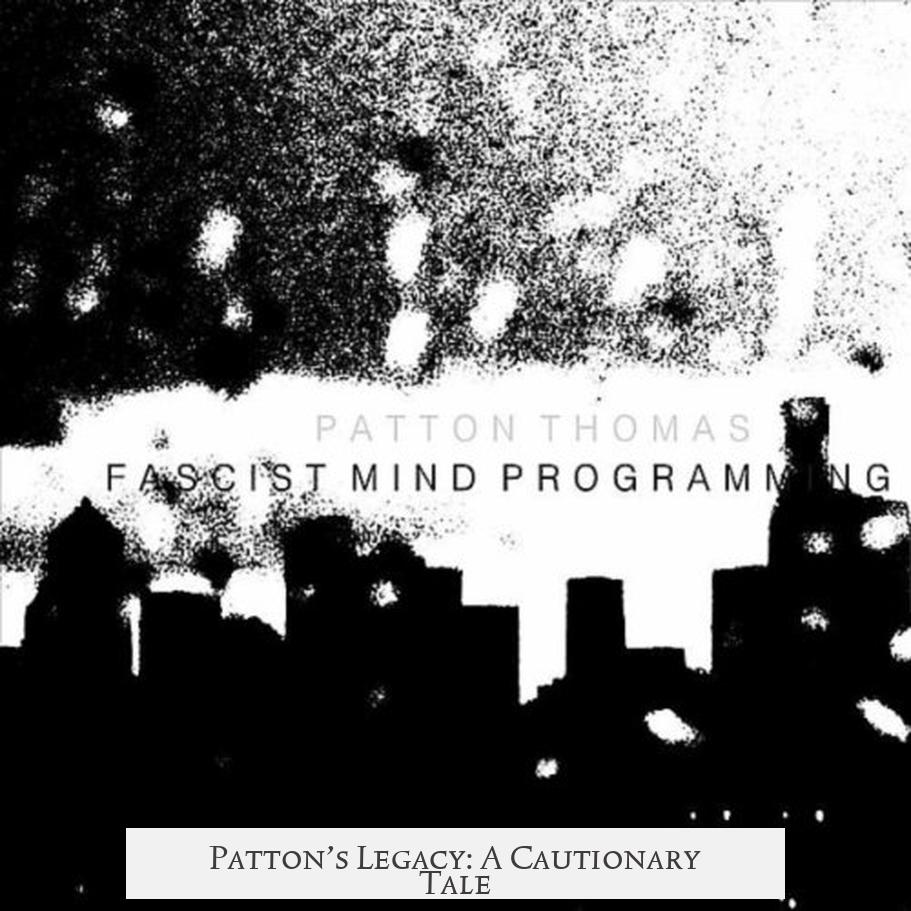
Patton’s life and words defy neat labels. He was a brilliant general, a harsh critic of Communism, and a man with deep personal flaws. His desire for war and hatred for Soviet communism sometimes led him into murky ethical waters.
His case is a reminder that historical figures are complicated. They often hold conflicting beliefs that evolve with context, influenced by personal biases and the political climate. This complexity demands careful examination rather than catchy quotes.
So next time you hear the phrase “Patton said we fought on the wrong side,” the real story invites us to question, dig deeper, and understand the tangled web of fear, prejudice, and strategic uncertainty that shaped his perspective.
Final Takeaway
Patton’s true position boils down to a grim forecast: He believed that defeating Nazi Germany was just Step 1, and the larger, looming threat was Soviet Communism. But he stopped short of endorsing an alliance with fascism—instead, he hoped for a future war to defeat communism. His views were controversial, racially prejudiced, and ultimately costly to his career. It reminds us history’s stories are rarely black-and-white.
Patton might not have wanted Americans fighting side-by-side with Nazis, but he sure wanted to be ready when the real war began — against the Soviets.
